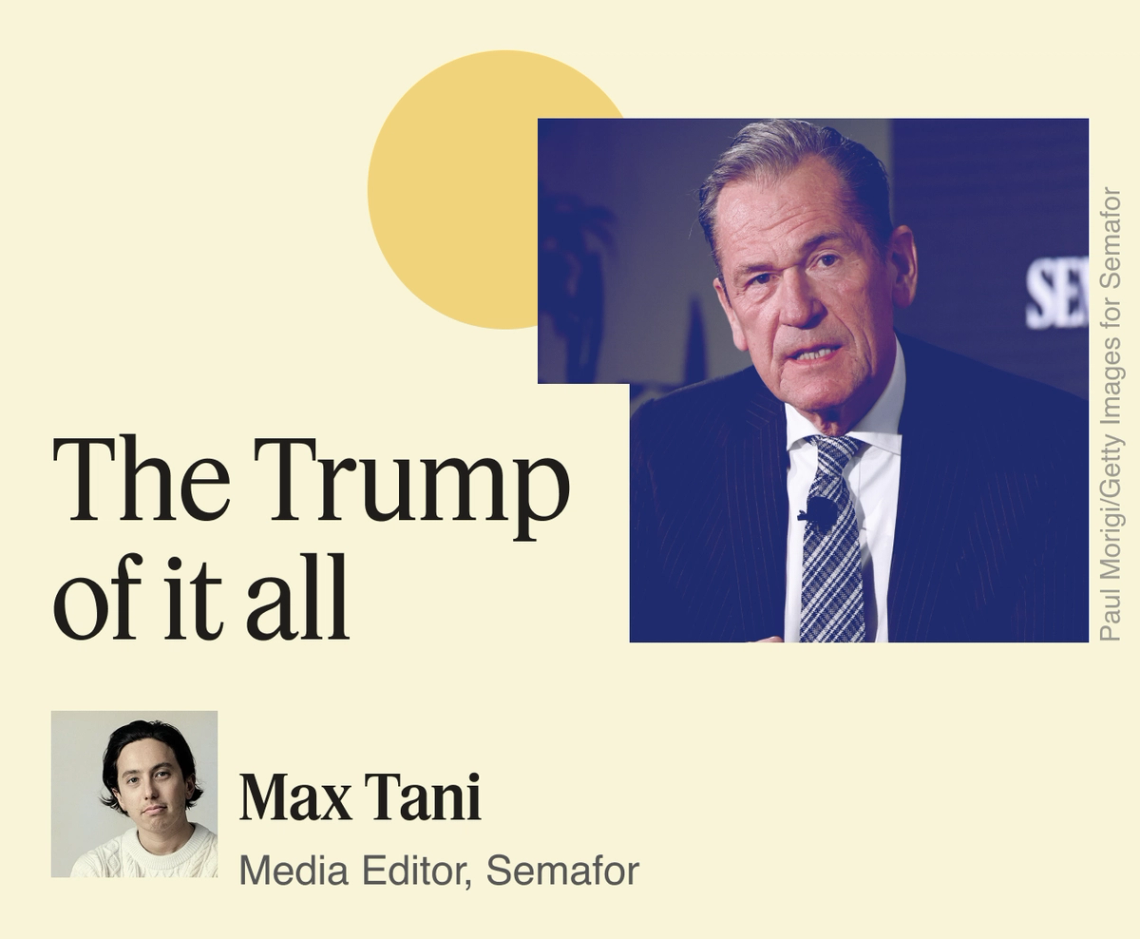 Before we took the stage last week at Semafor’s Trust in Media summit, Axel Springer CEO Mathias Döpfner told me the extremely straightforward reason he had agreed to the event: He believed the topic was important, and wanted to talk about what he was doing to restore trust. I did my best to ask him about it, but it was hard not to get distracted by all the Washington politics Döpfner seemed caught up in. He had just met with White House chief of staff Susie Wiles. And as he was preparing for the interview, Döpfner, a Netflix board member, was also checking his phone to get up to speed on Netflix’s ultimately unsuccessful attempt to buy Warner Bros. Discovery, after President Donald Trump went after fellow board member Susan Rice for comments criticizing companies that bent to his will. The German mogul wasn’t our only guest who evaded our questions about getting sucked into Washington politics: Onstage with Ben Smith, former BBC News head Deborah Turness recounted how she resigned last year after a documentary edit became the focal point of a massive lawsuit from Trump against the British broadcaster. It’s the recurring theme of the Trump age. As much as corporate leaders want to avoid politics and make money, it’s nearly impossible to strike deals without navigating an administration aggressively using leverage to extract lopsided concessions. Corporate media owners who loved Trump the first time around for his ratings, web traffic, and subscription juice are instead feeling the squeeze as he directly meddles in their businesses. Many media organizations are already on the back foot. They’re even more vulnerable to pressure, partially because of declining audience trust and the allure of sensationalized content from social media — which we’ve seen on full display over the weekend, as misleading, fake, and contextless short-form video content of the fallout from the US and Israeli strikes on Iran floods social media platforms. Most of the ideas shared on Wednesday couldn’t answer how to keep audiences from being misled by bogus social media content. Instead, Döpfner suggested greater transparency about the values of media institutions. So did FCC Chairman Brendan Carr, in somewhat unexpected praise for Zeteo founder Mehdi Hasan. Turness suggested news outlets think more creatively about formats and better cover the right. There’s no true playbook for how to navigate this moment. But finding a way to improve trust with audiences may be what helps them survive the vortex that is Trump’s Washington. Also today: Bari Weiss’ CBS leadership in wartime. |